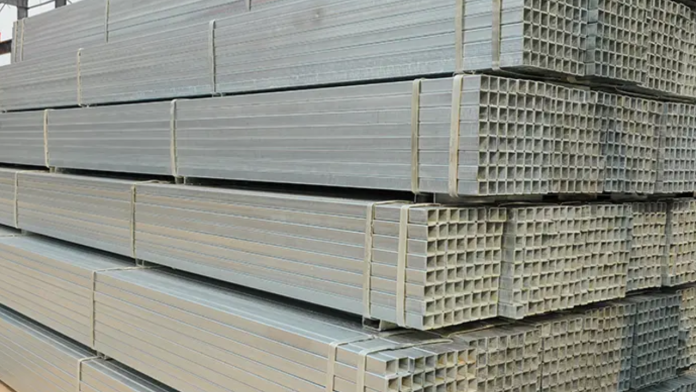AS 1163 is an Australian Standard that specifies the manufacture and sale of structural steel hollow sections in a variety of shapes, including circular, square, rectangular, and elliptical, which are widely utilized in construction and infrastructure projects. It specifies severe specifications for material composition, production methods, and quality control to assure the integrity and dependability of steel pipes.
Environmental issues in AS 1163 steel pipe production are important since the industry recognizes its environmental impact. Environmental considerations not only link the sector with global sustainability goals but also respond to rising societal demands for responsible and eco-friendly manufacturing. As industries around the world adopt greener practices, environmental considerations in as 1163 steel pipe production become critical to both environmental stewardship and long-term industry survival.
Environmental Considerations In AS 1163 Steel Pipe Production
The fabrication of AS 1163 steel pipes entails a complex interplay of industrial processes that can have environmental consequences. In recent years, there has been a greater emphasis on sustainable manufacturing processes and minimizing environmental effects across industries. This article investigates the environmental implications of AS 1163 steel pipe production, highlighting major areas where sustainability measures might be adopted.
Raw Material Selection
In AS 1163 steel pipe production, raw material selection is crucial for environmental sustainability. While the standard outlines specific chemical and mechanical requirements, manufacturers can enhance eco-friendliness by opting for recycled or sustainably sourced steel. Utilizing such materials contributes to a reduced environmental footprint and aligns with the industry’s commitment to responsible sourcing, fostering a more sustainable approach to steel pipe manufacturing.
Energy Consumption
Energy consumption is an important environmental consideration in AS 1163 steel pipe production. The energy-demanding manufacturing process provides the potential for sustainability. Implementing energy-efficient equipment can help minimize the overall energy footprint. These initiatives not only reduce environmental impact but also link the industry with worldwide efforts to shift to more sustainable and environmentally friendly manufacturing techniques.
Waste Management
Waste management is critical in AS 1163 steel pipe manufacture to reduce environmental effects. Manufacturers can set up effective recycling programs for scrap steel and other waste materials generated during production. By recycling and reusing products, the industry reduces its dependency on raw materials, reduces landfill trash, and helps to promote a more circular and sustainable approach. Effective waste management strategies promote responsible resource utilization in the steel production industry.
Water Usage
Water consumption in AS 1163 steel pipe manufacture is an important environmental consideration. Implementing water conservation and recycling solutions contributes to a lower overall water footprint. Manufacturers can reduce their water resource impact by optimizing processes and using sustainable water management methods. This strategy leads to a more responsible and environmentally friendly manufacturing process to ensure the sustainable use of important natural resources.
Emissions Control
Emissions control is vital in AS 1163 steel pipe production to mitigate environmental impacts. Implementing advanced technologies and practices, such as efficient combustion processes and emissions capture systems, helps minimize the release of pollutants into the air. This commitment to emissions control aligns with sustainability goals, reducing the industry’s carbon footprint.
Galvanization Process
The galvanization method used in the production of AS 1163 steel pipes, while necessary for corrosion resistance, should be considered environmentally. Traditional hot-dip galvanizing uses zinc, which has possible environmental consequences. Eco-friendly galvanization processes and zinc recycling can help reduce environmental effects. Manufacturers contribute to a more environmentally friendly approach by implementing sustainable alternatives.
Certifications and Compliance
Certification and compliance are essential for producing ecologically responsible AS 1163 steel pipes. Obtaining certifications shows a commitment to sustainable practices. Adherence to environmental legislation and standards guarantees that manufacturing operations follow established norms. By gaining certifications and assuring compliance, producers demonstrate their commitment to eco-friendly methods, helping to achieve the larger goal of reducing environmental impact in the steel sector.
Remarks
Environmental considerations in AS 1163 steel pipe production are integral to the broader movement toward sustainable and responsible manufacturing. By addressing these factors, manufacturers can contribute to a more environmentally friendly steel industry. As the demand for sustainable practices continues to grow, integrating these considerations into AS 1163 steel pipe production not only aligns with regulatory requirements but also positions the industry as a leader in responsible manufacturing.







